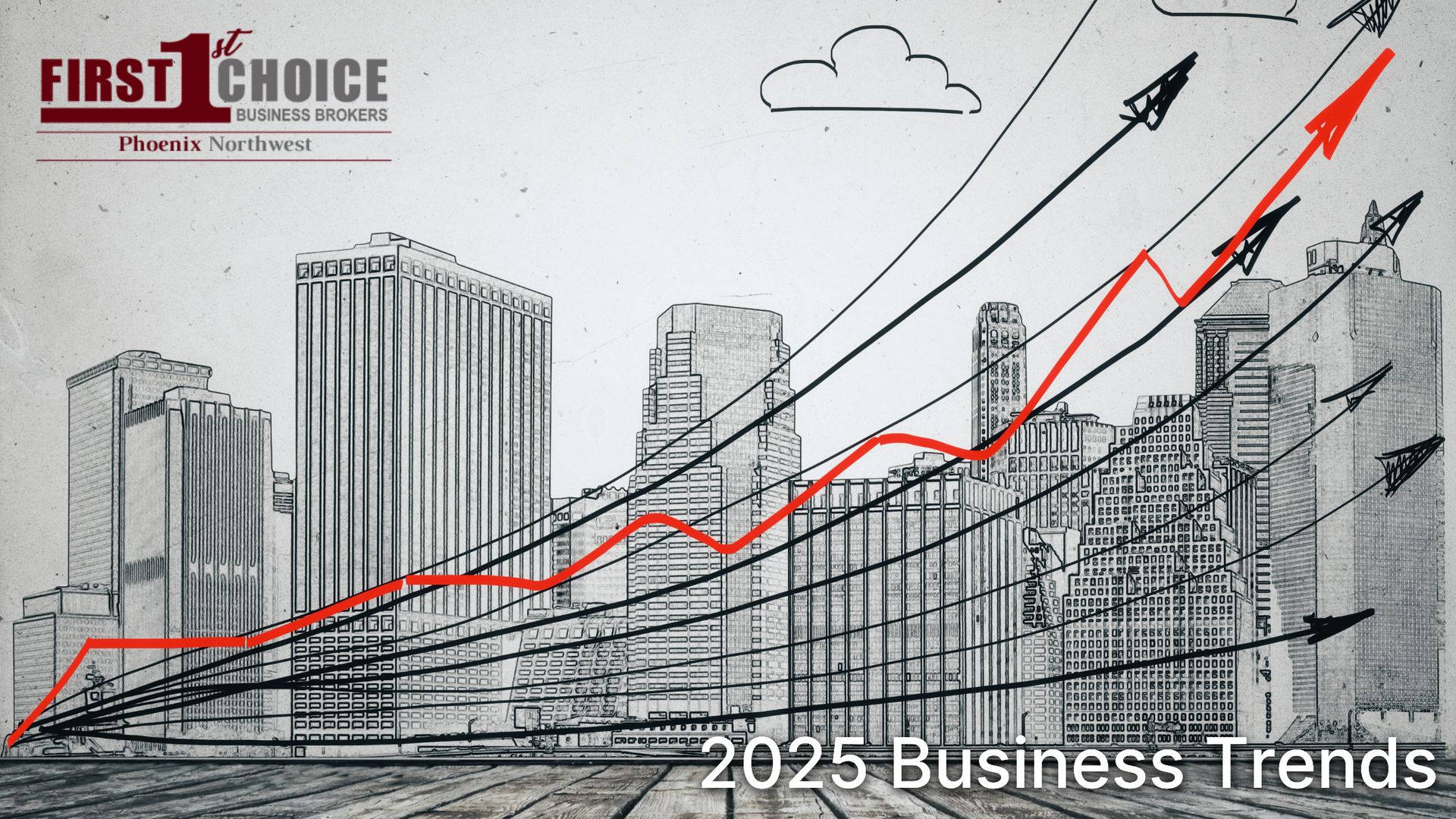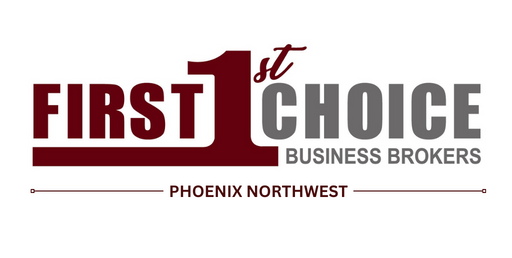The Evolution of the Business Brokerage Industry: Trends for 2025

The business brokerage industry has undergone profound changes in recent years, influenced by advancements in technology, shifts in market dynamics, and evolving buyer and seller expectations. As we look toward 2025, several key trends are set to reshape the industry’s landscape. These trends offer significant opportunities for business brokers, buyers, and sellers alike to adapt and thrive in an increasingly competitive market. By understanding these changes, stakeholders can better navigate the future of business transactions and maximize success.
Technology-Driven Transactions
The rise of technology has already begun to redefine how business transactions are conducted, and by 2025, these advancements will play an even more pivotal role in business brokerage. AI-powered tools for business valuation and online marketplaces that connect global buyers and sellers are enhancing the efficiency of the entire transaction process. Technology is helping brokers streamline operations, reduce human error, and provide data-driven insights into the market. In addition, innovations such as virtual tours, video conferencing, and secure document-sharing platforms are allowing brokers and clients to conduct due diligence remotely, eliminating geographical barriers and accelerating deal timelines.
A major technological leap on the horizon is the integration of blockchain technology, which is expected to further transform the industry by providing tamper-proof transaction records. With the introduction of smart contracts, brokers and clients can automate key steps of the business transfer process, ensuring transparency and reducing the risk of fraud. This shift towards blockchain will increase trust among all parties involved, creating a safer, more efficient environment for business transactions. As this technology matures, its widespread adoption will revolutionize how business brokers operate, providing a new level of security and efficiency that will drive the future of the industry.
Increased Demand for Niche Expertise
As the business landscape becomes increasingly specialized, the need for brokers with deep knowledge in specific industries will intensify. Buyers are no longer just looking for general business brokers; they seek experts who understand the unique characteristics, challenges, and opportunities within specific sectors such as healthcare, technology, and e-commerce. A specialized broker can offer insights into industry-specific trends, regulatory hurdles, and valuation nuances that generalists may miss.
This demand for niche expertise underscores the importance of continuous professional development for business brokers. Those who invest in industry-specific training, certifications, and networking will be better positioned to cater to the growing need for specialization. The industry will likely see the growth of collaborative networks where brokers with varying expertise in different sectors can work together to provide clients with comprehensive services. Brokers who stay ahead of these trends will not only attract clients more effectively but also position themselves as trusted advisors capable of handling complex, industry-specific transactions.
Data-Driven Decision Making
The increasing availability of big data and advanced analytics tools is transforming how brokers approach the buying and selling process. By 2025, data-driven strategies will be even more integral to business brokerage operations. Brokers can already leverage data to assess market demand, buyer behavior, and competitive landscapes, optimizing their approach to pricing and negotiations. With predictive analytics, brokers will be able to forecast market trends and future business performance, enabling them to provide valuable insights to clients.
The power of data allows brokers to make more informed, evidence-based decisions, which enhances their ability to identify opportunities and negotiate better deals. With more reliable market intelligence at their fingertips, brokers can also offer clients greater transparency, building trust and confidence throughout the transaction process. By utilizing these tools, brokers can create more tailored solutions for buyers and sellers, improving the overall success rate of business sales and acquisitions.
Changing Buyer Demographics
As the business brokerage industry evolves, so do the demographics of buyers. Younger, tech-savvy entrepreneurs—especially from the millennial and Gen Z generations—are increasingly entering the market with new perspectives and expectations. These younger buyers are often drawn to businesses with strong digital presences, scalable business models, and sustainable practices. For brokers, understanding the preferences and motivations of these buyers will be critical to staying competitive in the years ahead.
To appeal to these buyers, brokers will need to emphasize businesses with cutting-edge technology, subscription-based revenue models, and eco-friendly operations. Millennials and Gen Z entrepreneurs also prioritize businesses that demonstrate a commitment to innovation and social responsibility, so showcasing these attributes in listings will become essential. By adapting to the preferences of younger buyers, brokers can ensure that their business offerings align with market demands, helping clients secure favorable deals while staying ahead of emerging trends.
Focus on Sustainability and Social Responsibility
Sustainability and corporate social responsibility (CSR) are no longer just buzzwords; they have become significant factors influencing investment decisions. As environmental, social, and governance (ESG) concerns continue to rise, buyers are increasingly drawn to businesses with strong sustainability practices. By 2025, ESG metrics will be an essential component of any business valuation. Brokers will need to emphasize the sustainability efforts of the businesses they represent and incorporate ESG factors into their assessments to attract responsible investors.
Businesses that prioritize ethical sourcing, diversity, and community engagement are likely to command higher valuations in the future. Brokers who stay ahead of this trend and integrate sustainability into their business strategies will have a competitive edge. Buyers focused on responsible investing will place greater value on companies with a positive impact on society, and brokers can leverage this growing demand to provide compelling opportunities to clients. By aligning with ESG principles, brokers can not only appeal to conscious investors but also help foster businesses that contribute positively to society.
Conclusion
The business brokerage industry is undergoing significant transformation, with technological advancements, changing buyer expectations, and the increasing importance of data and sustainability driving the shift. Brokers who embrace these trends and adapt their strategies accordingly will be well-positioned to succeed in 2025 and beyond. By leveraging technology, honing niche expertise, and staying attuned to market demands, brokers can continue to create value for their clients, fostering successful transactions in a more dynamic and competitive landscape. As these trends evolve, brokers must stay agile and proactive, ensuring they are equipped to navigate the changing landscape of business sales and acquisitions effectively.
How is technology transforming the business brokerage industry?
Technology is revolutionizing the business brokerage industry by streamlining transactions and improving efficiency. AI-powered valuation tools, online marketplaces, and secure document-sharing platforms are already enhancing the speed and accessibility of deals. In 2025, blockchain technology is expected to play a larger role, providing tamper-proof transaction records and automating key steps through smart contracts. This digital transformation increases transparency, reduces fraud, and allows brokers and clients to conduct due diligence remotely, speeding up the overall transaction process.
What role does niche expertise play in the future of business brokerage?
As industries become more specialized, buyers are increasingly seeking brokers with deep knowledge and expertise in specific sectors like healthcare, technology, and e-commerce. Specialized brokers can provide valuable insights into industry trends, regulatory requirements, and unique valuation factors that generalist brokers may miss. This growing demand for niche expertise means that brokers must invest in continuous professional development and industry-specific certifications to stay competitive and attract clients looking for specialized guidance.
How will changing buyer demographics affect business brokerage in the future?
The changing demographics of business buyers, particularly younger, tech-savvy entrepreneurs from millennial and Gen Z generations, will have a significant impact on business brokerage. These buyers prioritize businesses with strong online presences, scalable models, and sustainable practices. To meet the preferences of these new buyers, brokers must emphasize digital transformation, subscription-based revenue models, and eco-friendly business practices in their listings. Understanding the motivations of these younger buyers will be crucial for brokers to stay competitive and secure successful deals.

Get in Touch:
First Choice Business Brokerage Phoenix
📍 21640 N 19th Ave Suite C9, Phoenix, AZ 85027
📞 (623) 888-6190
More Blogs For You





